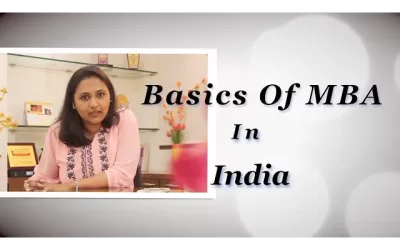MBA in India
Master of Business Administration – MBA Coaching Classes in Mumbai
Pursuing an MBA in India is an achievement in itself for many. Beating the competition and being a part of one of the most coveted programs adds to the pride of the student. Learning and betterment of one’s own wisdom is the key to success in any area and an MBA should be looked at as an opportunity to improve efficiency and mostly as being proactive in taking the lead and speeding up processes. We all know that getting an MBA degree from any good B school in India can also include improving some features of our personality in order to be successful in our future professions.
Moreover, pursuing an MBA in India, especially if you intend to stay here, would make more sense because the curriculum and the case studies would be based on the Indian scenario. It will be beneficial to one’s career if one learns about the local business ethics and system. For example, for a course like Marketing – understanding and studying the Indian market in close proximity would be more profitable, if one wishes to venture into a promising career or business idealistic to the Indian economy.
Also with the present and upcoming tie-ups / collaborations of Indian institutes with foreign universities, there is an opportunity to gain quality education of international standards without having to leave your country. These institutes in partnership with foreign universities confer degrees with a global curriculum, giving you that extra benefit. Thus in other words it means a cost effective, international standard degree!!
However, to ensure that students with the required aptitude and managerial skills get the opportunity to gain a quality education, institutes have certain parameters for selection. And entrance exams are one of them. Clearing these entrance exams with maximum marks becomes the first and only focus of the students. Joining classes or self study and solving as many papers to earn the right score becomes the one point agenda as it seems to be only way for admission to leading MBA colleges in India. But little does one focus on the other skills that are essential to the program.
A crucial ingredient of an administration / management degree is fully equipping the candidate with required parameters and development of related potentialities to do justice to the job. Certain skills and traits are helpful in order to succeed in the profession. These include business acumen, quantitative aptitude, analytical skills, resilience, communication and presentation skills, competitiveness, leadership, accountability, decision making, managing crises and people skills. Though this may not be an exhaustive list of skills, in case of an MBA degree these qualities become inevitable.
Students should bear in mind that along with the entrance exam preparation, these skills have also to be honed, as they are going to be evaluated during the Group Discussions [GD] and Personal Interview (PI). The lack of these skills may hamper their chances of being selected. Students who plan to pursue their MBA in India have to follow the process of clearing the entrance exam with excellent scores, group discussion and personal interview to qualify for a top B- School. MBA is generally two years full time course and there are many part time courses as well available.
Some of the best MBA institutes in India known for their management education are

Contact Best MBA Entrance Exams Coaching Classes in Mumbai.
Meet Experienced MBA Entrance Exams Teachers: Get MBA Entrance Exams Study Material, MBA Entrance Exams Practice Mock Test, Best MBA Entrance Exams Score. For appointments, Call: 9320505657 / 9320309897 / 9320608844
Frequently Asked Questions (FAQs) About MBA In India
Why should I consider pursuing an MBA in India?
India’s MBA programs offer a unique blend of academic rigor, industry exposure, and cultural immersion. This distinctive combination not only equips you with valuable skills but also opens doors to diverse career opportunities in a rapidly growing economy. The chance to immerse yourself in India’s rich and diverse culture is an added bonus that makes studying here a truly unique experience.
Which are the top MBA colleges in India?
The Indian Institute of Management (IIMs) is consistently ranked among the best, followed by prestigious institutions like XLRI, ISB, FMS Delhi, and SPJIMR. Each college has its strengths and specializations, so it’s essential to research and find the right fit for your goals.
What are the different types of MBA programs available in India?
You can choose from full-time, part-time, executive, and online MBA programs. Full-time programs are ideal for recent graduates or those seeking a career change, while part-time and executive programs cater to working professionals.
What are the eligibility criteria for MBA programs in India?
Most MBA programs in India require a bachelor’s degree with a minimum percentage, usually 50% or above. In addition, you’ll need to take a standardized entrance exam like the CAT, XAT, GMAT, or NMAT. These criteria ensure that you have the necessary academic foundation and aptitude for the rigorous MBA curriculum.
How can I prepare for the MBA entrance exams?
At Growth Centre, we offer comprehensive coaching programs to help you ace your MBA entrance exams. Our expert faculty, study material, and mock tests will equip you with the knowledge and skills you need to succeed.
What are the key factors to consider when choosing an MBA college?
Consider the college’s reputation, faculty expertise, curriculum, placement record, alumni network, location, and specializations offered. Consider your career goals and choose a program that aligns with your aspirations.
What are the career prospects after completing an MBA in India?
The career opportunities after an MBA in India are not just vast, they’re also incredibly diverse. Whether you’re interested in consulting, finance, marketing, operations, human resources, or entrepreneurship, there’s a path for you. This diversity of options should inspire you and give you the confidence that your MBA can lead to a fulfilling and rewarding career.
How can Growth Centre help me with my MBA journey?
At Growth Centre, we offer comprehensive support for your MBA aspirations. Our coaching programs prepare you for entrance exams, our counseling services help you choose the right colleges, and our interview preparation modules ensure you’re ready to impress admission panels. With our end-to-end support, you can embark on your MBA journey with confidence and reassurance.
What is the average salary package for MBA graduates in India?
Salaries vary depending on the college, specialization, and prior experience. However, you can expect a significant salary increase after completing your MBA, with average packages ranging from 10 to 30 lakhs per annum or more.
What are the benefits of pursuing an MBA in India over studying abroad?
Studying in India offers several unique advantages, including lower tuition fees, exposure to the Indian business landscape, and a strong alumni network within the country. Additionally, you’ll be immersed in a rich and diverse culture, which can provide a unique perspective and understanding of global business.
Is work experience required for MBA programs in India?
While some programs prefer candidates with work experience, many colleges also accept fresh graduates. Work experience can be beneficial but is optional.
How can I improve my chances of getting into a top MBA college?
Focus on achieving a high score in the entrance exam, building a solid academic record, gaining relevant work experience, participating in extracurricular activities, and preparing a compelling application.
What scholarships and financial aid options are available for MBA programs in India?
Many colleges offer scholarships based on merit, diversity, or need. You can also explore educational loans from banks or financial institutions.
What is an MBA’s ROI (Return on Investment) in India?
An MBA from a top Indian college typically offers a high ROI, with graduates often seeing a significant increase in earning potential within a few years.
How can I make the most of my MBA experience?
Engage actively in classroom discussions, participate in extracurricular activities, network with peers and faculty, seek out internships and projects, and take advantage of career services offered by the college.
What are the challenges faced by MBA students in India?
Some common challenges include the rigorous academic workload, peer competition, and the pressure to secure a suitable placement.
What are the emerging trends in MBA education in India?
Some emerging trends include specialized MBA programs, a focus on entrepreneurship and innovation, increased use of technology in teaching, and a growing emphasis on sustainability and social impact.
What are some tips for choosing the right MBA specialization?
Consider your interests, career goals, and aptitude. Research different specializations and talk to alumni or industry professionals to get insights into the job market and career paths.
Can I pursue an MBA after completing a non-business undergraduate degree?
Yes, many MBA programs welcome applicants from diverse academic backgrounds. Your unique perspective and skills can be valuable assets in the business world.
How can I contact the Growth Centre for MBA counseling and coaching?
You can visit our website, call us, or email us to schedule a consultation with our expert counselors. We’re here to guide you through your MBA journey and help you achieve your dreams.
Entrance Exam Coaching
- BBA Coaching Classes
- CAT Coaching Classes
- CMAT Coaching Classes
- MBA Entrance Exams
- MBA in India
- NMAT Coaching Classes
- Bank Entrance Exam
- CET Coaching Classes
- SNAP Coaching Classes
- XAT Coaching Classes
- GRE Coaching Classes
- PTE Coaching Classes
- GMAT Coaching Classes
- SAT Coaching Classes
- TOEFL Coaching Classes
- IELTS Coaching Classes
- IELTS UKVI
- Test Preparation
- Tips & Tricks
Explore MBA In India Related Blogs
Competitive Entrance Exams to Study Abroad
Competitive Entrance Exams to Study Abroad – Entrance Exams like SAT, GRE, GMAT – In this episode, Ms. Kunjal Sakhrani has spoken about the various entrance…
Master English Proficiency: Beginner to TOEFL Pro
From Beginner to TOEFL Pro: Your Journey to Mastering English Proficiency is a transformative expedition that showcases your commitment to…
Planning for MBA? Know the Basics for MBA
Planning for MBA? Know the Basics for MBA – Things to do Before Starting your MBA – In this episode, Ms. Suchitra Surve gives us insight about one of the…



